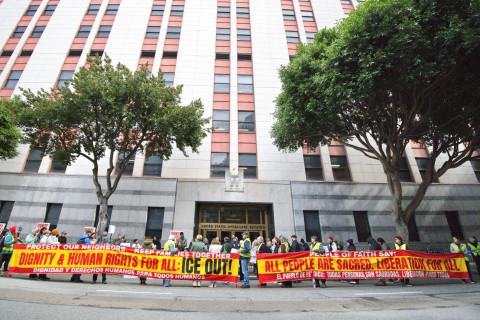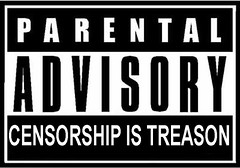I woke up this morning excited about the Presidential Elections.
Not the stupid "Hillary vs. Rudy Giuliani" garbage being spewed by the talking heads. Not the Democratic Party hand-wringing or the Republican Party jockeying, either.
There's another presidential election, going on right now, on the other side of the world, that should give all Americans hope.
Liberia, a nation partly founded by former American slaves and partly by the various backroom dealings of some of the United States' most visible 19th century leaders, went to the polls yesterday, choosing from 22 potential candidates for the first time since the fall of the Charles Taylor regime.
Liberia has too long been that wild step-sister that Americans refuse to look squarely in the eye. Its capital, Monrovia, is named for a former U.S. president. The tiny nation's Founding Fathers were not born in Africa, but were exiled former slaves born in places like Ohio, Virginia, and New England.
Part of the self-imposed blindness, I suppose, comes from the fact that much of Liberia's history, through the 1970s, mirrors a bleak reflection of the most embarrassing and tragic portions of own history. Liberia's founders first purchased an island from local tribal leaders and then took the rest through conquest. The founders of the American colonies did the same thing. The former American Free Men of Color modeled a lot of elements of their society after the 19th century stylings of their American siblings- including the adoption of the "civilized" practices of forced labor and slavery, political nepotism, and suppression of native religious beliefs to bolster Christianity.
When America finally came to its senses and finally began to reject many of these wholesale practices, Liberia flourished under our own antiquated system. The Native African population was eventually given some voting rights, but still lived under Liberia's own version of Jim Crow. Unlike the United States, where the prosperity and superpower status after the Second World War led to a Civil Rights revolution and turned people like Martin Luthor King and Caesar Chavez into a generation's liberators, Liberia went the eventual, inevitable route of murderous chaos due - a silly racial split based on silly childish prejudices left over from the 1800s.
Its an interesting thing to ponder...could the American Cultural Revolution of the mid 20th century ended differently? What if the voices of non-violent change had been ignored in favor of militant change and bloody counter-resistance? While the news footage of peaceful marchers in Selma and Birmingham, Alabama, being attacked by police dogs and fire hoses is still hauntingly disturbing, what would American Society be like today had those same protestors decided to raid a national guard armory before the protest? What if AIM (The American Indian Movement) leaders had really spurned massive violent resistance to White America? Or the Black Panther Movement had turned completely from local defense to strategically significant offense?
America's social and cultural prestige in the world is not owned to a nation's reliance on the gun or a nuclear arsenal. It is reliant on our peacemakers and the frequent ability to peaceably assemble, speak, and to, more importantly, to reach compromise through our democratic system. Blessed are the peacemakers.
Now Liberia, after years of bloody civil war, mass rapes and killings, and child armies roaming the streets, is holding free elections. The next President of Liberia may be former AC Milano footballer George Weah. It could also be Ellen Johnson-Sirleaf, who could be the first woman ever elected to lead an African nation. The Liberian ballot is full of a nation's best and brightest, its social critics, its dissident voices, its most violent advocates for change, and its truest representatives.
In many ways, its recent violent history has brought Liberia back to its true ideological roots, the purest intent of the democracy its society is modeled after. These principles, of course, remain the United States most important export - often, in spite of our own actions. The men and women who founded our own country, in spite of their flaws, outlined what it takes to make freedom work. And they realized, too, that peaceful resolution and individual human rights are indeed compatible.
These principles rang true in 1700s America. And, hopefully, they will hold true in 21st century Liberia. The responsibility of a free society is to elect its best advocates of freedom, not the best advocates for a particular ideology, political party, or special interest group.
Maybe there's a lesson in there, somewhere, that the United States can learn from its maturing baby sister.
Fini
-
Due to my changing job responsibilities and numerous serious personal
issues (I’ve been out of work for a month on medical leave) this blog has
run its cou...
15 years ago













No comments:
Post a Comment